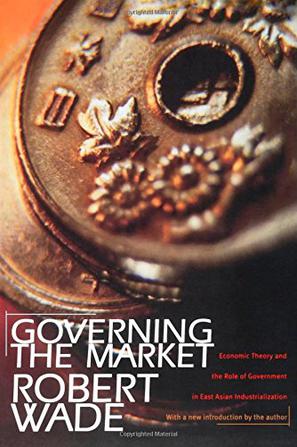-

Weapons of the Wealthy
Review "Many analysts casually comment on the importance of 'informal politics' in Central Asia, but in Weapons of the Wealthy, Scott Radnitz provides an elegant theory of 'subversive clientelism' that explains how vertical and horizontal networks of patronage actually operate. This pioneering book is a major contribution to our understanding of the sources of political mobilization in Central Asia and across other illiberal states where coalition-building and contestation take place outside the formal institutions of the state."-Alexander Cooley, Barnard College, Columbia University "In this important study, Radnitz examines the processes of political change in post-Soviet Central Asian states. Based on extensive fieldwork in Kyrgyzstan and Uzbekistan, Radnitz sets out to understand the dynamics of mass mobilization in opposition to authoritarian regimes. . . . He argues that these mass protests, rather than being organized by civil society organizations, result from the incentives created by a system . . . in which . . . elite actors are able to provide significant benefits to local communities . . . [allowing them] to mobilize collective action that challenges the state in order to promote their own interests."-Choice "Weapons of the Wealthy is simply one of the best examples of deep, qualitative, theory-driven research that I have seen. This book is a significant step in building a body of theory on how politics really works in hybrid regimes."-Henry E. Hale, George Washington University, author of Why Not Parties in Russia? "Weapons of the Wealthy is a highly original and comprehensive account of the complicated contortions of political change in Kyrgyzstan. Scott Radnitz makes masterful use of comparative political theory to provide important new insights on why people revolt, even in highly divided societies."-Kathryn Stoner-Weiss, Stanford University -

Pathways from the Periphery
-

Governing the Market
Published originally in 1990 to critical acclaim, Robert Wade's "Governing the Market" quickly established itself as a standard in contemporary political economy. In it, Wade challenged claims both of those who saw the East Asian story as a vindication of free market principles and of those who attributed the success of Taiwan and other countries to government intervention. Instead, Wade turned attention to the way allocation decisions were divided between markets and public administration and the synergy between them. Now, in a new introduction to this paperback edition, Wade reviews the debate about industrial policy in East and Southeast Asia and chronicles the changing fortunes of these economies over the 1990s. He extends the original argument to explain the boom of the first half of the decade and the crash of the second, stressing the links between corporations, banks, governments, international capital markets, and the International Monetary Fund. From this, Wade goes on to outline a new agenda for national and international development policy. -

时间中的政治
路径依赖的主张通常指出,开端是极为重要的。因此人们可能会问:为什么开启关于路径依赖的讨论?答案是,理解自我强化的过程,对于探究大量关于时间性的议题,是极为有用的。探究路径依赖的起源和结果,帮助我们理解强烈的惯性或“黏性”,而这是很多方面的政治发展的特征;例如,经常源自特定制度安排(institutional arrangement)的持续结果。这些论点也可以重振社会关系的权力分析,说明权力不平等(也许最初是轻微的)如何随时间而强化,而且经常深嵌于组织、主导的政治行动和政治理解、制度安排之中。针对重大社会结果及政治结果所预设的功能主义解释(预设当前社会安排之存在,透过参考它们处置当前强者的需要,可以得到解释)的倾向,路径依赖的论述也提供了有用而强大的修正。而且,认同路径依赖的普遍性,就迫使人们关注在时间上遥远的事件或过程的因果重要性。路径依赖的过程举例证明了阿瑟·斯汀康比(Arthur Stinchcombe)所说的“历史因果性”(historical causation),即某一时间点的事件或过程所引起的动态会自行繁衍,即使原来的事情或过程不再重现。 -

China's Security State
China's Security State describes the creation, evolution, and development of Chinese security and intelligence agencies as well as their role in influencing Chinese Communist Party politics throughout the party's history. Xuezhi Guo investigates patterns of leadership politics from the vantage point of security and intelligence organization and operation by providing new evidence and offering alternative interpretations of major events throughout Chinese Communist Party history. This analysis promotes a better understanding of the CCP's mechanisms for control over both Party members and the general population. This study specifies some of the broader implications for theory and research that can help clarify the nature of Chinese politics and potential future developments in the country's security and intelligence services. 1 The first book that provides a comprehensive analysis of Chinese security and intelligence apparatuses and services 2 Further promotes our understanding of the Chinese Communist Party's mechanisms for control over both party members and the general population 3 Draws from a wide range of sources published in different periods, providing new evidence and alternative explanations to major events throughout the history of the Chinese Communist Party -

From Dictatorship to Democracy